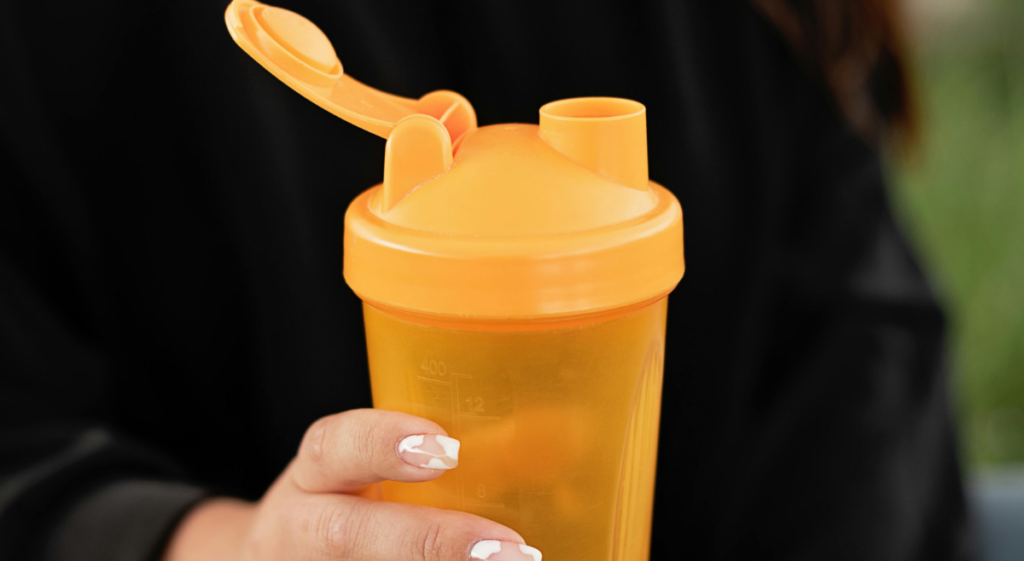
What Does Pre-Workout Actually Do?
Written by Fritz Nugent
Over the 15+ years of my coaching career, many Pre-workout supplements have come and gone. Many of my athletes have taken them, including myself, with mixed results. Lately, this type of supplement has become a popular part of many gym-goers’ routines, promising increased energy, better focus, and improved performance. I have had athletes who swear by their chosen pre-workout mixtures even though they notice decreased benefits and even some drawbacks over time. Others use pre-workouts sparingly, when needed. What exactly is in these colorful powders and drinks, and do they really deliver on the hype? What are the pros and cons?
What Is Pre-Workout?
Pre-workout is a category of supplement designed to be taken 15–45 minutes before exercise. Most come in powder form, mixed with water like a flavored drink, though pills and ready-to-drink versions exist. The goal of pre-workout is to give you an energy and performance boost to help you train harder, longer, or more effectively.
Common ingredients include:
- Caffeine – The main stimulant for increased energy and alertness.
- Beta-alanine – Helps buffer acid in muscles, delaying fatigue.
- Creatine – Supports strength and power output (though it works best when taken consistently, not just pre-workout).
- Citrulline malate – May increase blood flow and reduce muscle soreness.
- BCAAs – Branched-chain amino acids that may help with endurance and recovery.
- Nitric oxide boosters – Like arginine or beetroot extract, which improve circulation.
Not all pre-workouts are created equal, so reading the label is important—especially with blends that don’t disclose exact ingredient amounts. You’ll see this listed on the supplement label as “proprietary blend”, “performance matrix”, “pump blend”, “nitric oxide com”, etc. I would suggest steering clear of supplements that have this crap on the label, and instead look for:
- Fully transparent labels (where everything inside is listed on the supplement label)
- Third-party tested products (like NSF Certified for Sport or Informed Choice)
- Brands that disclose each ingredient with its specific dosage
Why It Matters:
Some ingredients only work at specific doses. For example:
- Beta-alanine needs ~3.2g/day
- Citrulline malate needs ~6–8g
- Caffeine is effective in the 150–300mg range, but sensitive people may want less
With proprietary blends, you have no way of knowing if you’re getting effective (or safe) doses.
What Does Pre Workout Actually Do?
When it works, pre-workout can:
- Increase energy: Thanks mostly to caffeine, you’ll feel more awake and ready to train.
- Enhance focus: Stimulants and nootropics in some formulas help with mental clarity and motivation.
- Delay fatigue: Ingredients like beta-alanine can reduce the burning sensation in your muscles and help you push a little longer.
- Improve blood flow: Some ingredients create a “pump” effect by increasing circulation, which can enhance performance and muscle fullness.
The effects usually kick in within 20–30 minutes and last 1–2 hours.
Pros of Pre-Workout
- Increased motivation: That extra buzz can help you get going when you’re tired or mentally checked out.
- Enhanced performance: Some ingredients are backed by research showing real benefits in strength, endurance, and training volume.
- Convenient energy boost: A scoop of pre-workout can replace a coffee or energy drink if you’re heading into a tough session.
Cons of Pre-Workout
- Side effects: Jitters, anxiety, rapid heartbeat, and tingling (from beta-alanine) are common, especially for sensitive individuals.
- Sleep disruption: Taking it too late in the day can interfere with sleep due to high caffeine content.
- Tolerance build-up: Over time, you may need more to get the same effect, which can lead to dependence.
- Hidden ingredients: Some formulas use proprietary blends, making it hard to know what you’re consuming.
Final Thoughts
Pre-workout can be a useful tool when used responsibly. If you’re looking for a boost before a big workout, it might help—but it’s not essential. Try not to get in the habit of daily consumption of pre-workout. If you eat well, sleep 7-8 hours each night, and manage your life stressors, then you have everything you need to enjoy your training and perform well without pre-workouts. You are enough 😉 Plus, a balanced diet, good sleep, and consistent training will always matter more in the long run. If you do decide to try pre-workout, start with a half dose to assess your tolerance, and avoid relying on it for every workout.
Looking for a Pre Workout Supplement?
Looking for a clean, pre workout to take before heading to the gym? We recommend trying Fuel, made by our friends at Momentous. Not only will Fuel give you an energy boost, but it will also keep you hydrated during tough workouts.
Google provides awesome remote work opportunities, allowing me to earn $2000-$3000 weekly with just 2-4 hours of daily work. It’s been a game-changer, offering flexibility and reliable income. If you’re seeking a genuine way to earn online, don’t miss this chance. Start today and transform your life!
.
More Details For Us →→→→→ Tinyurl.com/earnhome51